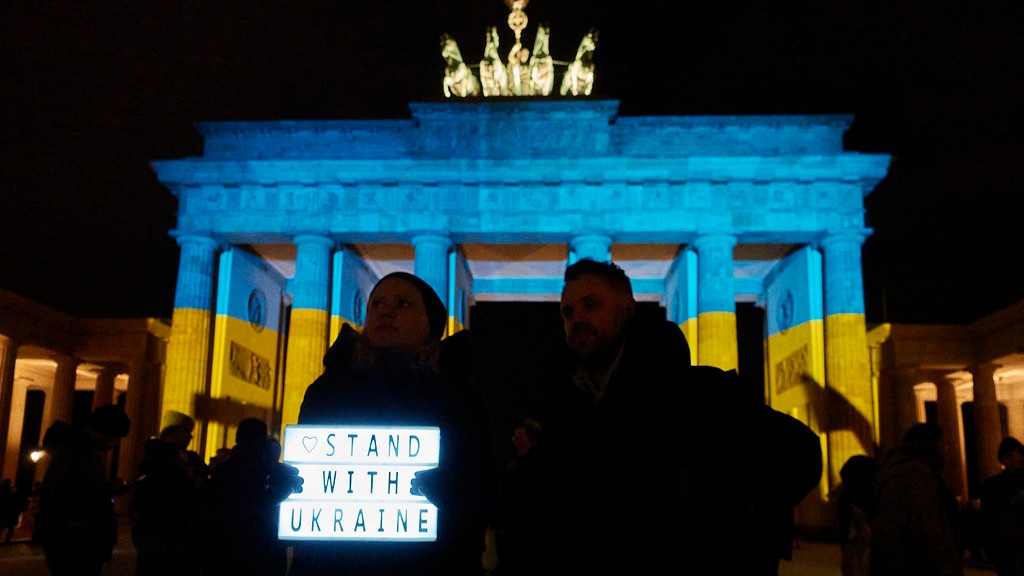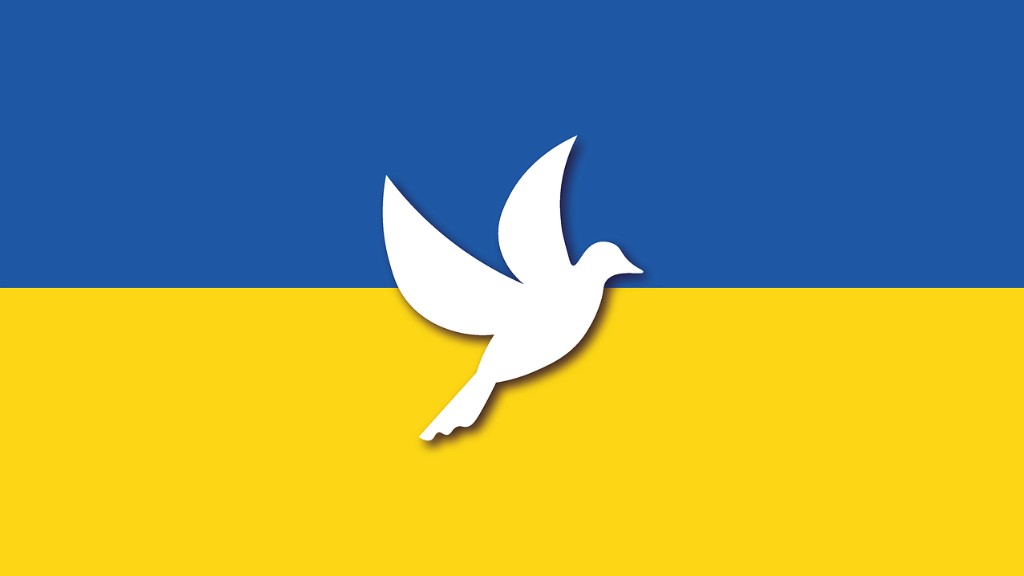Incursion
The ongoing conflict between Ukraine and Russia has been escalating rapidly since 2014. It started out as a dispute between the two countries over the annexation of Crimea by Russia. This was followed by the armed conflict in the Donbass region in eastern Ukraine, which has since resulted in a significant loss of lives on both Ukrainian and Russian sides. As a result, the tension between Ukraine and Russia has been on the rise ever since.
The conflict between the two countries has heated up in recent months, with Russia sending more troops and military equipment into Ukraine. This has led to increased fears that the situation could spiral out of control, with the potential for a major conflict between the two countries. In response to the incursion, Ukraine has intensified its military presence in the region and has called for NATO assistance.
The impact of the situation on the Ukrainian people is immense. The conflict has had a devastating effect on the economy, with the gross domestic product shrinking by 3 percent in 2018. In addition, the conflict has caused widespread social unrest, with protests taking place in major cities across the country. The conflict has also had a huge psychological impact on the people of Ukraine. Many are afraid that the conflict will spiral out of control and result in a major war between the two countries.
The international community has responded to the situation with a mix of caution and concern. The United Nations Security Council has issued a number of statements condemning the ongoing incursion and calling for a peaceful resolution of the conflict. The United States and the European Union have also increased diplomatic and economic pressure on Russia, in an attempt to bring the situation under control.
The future of the conflict between Ukraine and Russia remains uncertain. Although the two countries have agreed to a ceasefire, it remains to be seen what the long-term implications of the conflict will be. In the meantime, the Ukrainian people remain in a state of uncertainty and fear, waiting to see how the conflict will play out.
Sanctions
The Ukrainian conflict has led to increased international sanctions against Russia, with countries around the world imposing economic and diplomatic measures on the country in an attempt to bring an end to the conflict. The United States and the European Union have been particularly active in imposing sanctions, with the EU imposing wide-ranging economic sanctions against Russia. These sanctions have had a significant impact on the Russian economy, with the country losing billions of dollars in trade and investments.
The sanctions have had an adverse effect on the people of Ukraine as well. The disruption to trade has resulted in higher prices for many essential goods and services, at a time when the economy is already in decline. This has compounded the economic hardship faced by many Ukrainian people.
The international response to the conflict has also had a significant impact on the Russian economy. The sanctions imposed by the United States and European Union have resulted in the shrinking of the Russian economy by approximately 6 percent in 2015. This has had a profound effect on the country’s ability to access resources, finance its activities, and support its people.
The international community has also responded to the conflict by imposing sanctions on prominent Russian individuals and entities. This has been seen as a way to pressure the Russian leadership into ending the conflict. However, it remains to be seen if this approach will be successful, given the relative lack of influence that the United States and its European allies have on the Russian leadership.
The international community has also been working to provide support to the people of Ukraine. The EU has provided more than one billion euros in aid to Ukraine to help the country address the political and economic crisis. The United States has also provided hundreds of millions of dollars in aid to the country. In addition, countries around the world have pledged aid and support to Ukraine, in an effort to bring an end to the conflict.
Implications
The conflict between Ukraine and Russia has had a significant impact on the lives of ordinary people in both countries. In Ukraine, the conflict has resulted in a significant weakening of the economy and the country’s ability to provide essential services to its citizens. The conflict has also had a massive psychological impact on many Ukrainians, with many people feeling scared and uncertain about their future.
The conflict has also had a major impact on the global community. The imposition of sanctions by the United States and European Union has weakened the Russian economy significantly. This has had a ripple effect, with other countries around the world feeling the impact of the sanctions. In addition, the conflict has had a significant impact on global security, with fears that the situation could spiral into a major war between Ukraine and Russia.
The situation in Ukraine is likely to remain volatile for some time. The international community is still working to bring the conflict to an end, but there is no guarantee that it will succeed. In the meantime, the people of Ukraine remain in a state of uncertainty and fear, waiting to see what the future holds.
Tensions
The situation in Ukraine is unlikely to be resolved in the near future, with tensions between the two countries showing no signs of abating. The Russian government has maintained a hard-line stance on the conflict, while the Ukrainian government has taken a more moderate approach. The international community has also attempted to mediate the situation, without significant success. This has left the situation in a state of deadlock, with the conflict only deepening further.
The conflict in Ukraine has also resulted in increased tensions between the United States and Russia. The United States has imposed a number of economic sanctions on Russia in response to the conflict. This has been reciprocated by Russia, which has imposed a number of trade restrictions on the United States. These sanctions have damaged the economic relationship between the two countries and have significantly weakened their ties.
The conflict in Ukraine has also had a significant impact on the security architecture in the region. NATO has increased its presence in the region in response to the conflict, further heightening tensions between Russia and the West. This has resulted in a greater risk of miscalculation and escalation, and has made the situation in the region much more volatile.
The conflict in Ukraine has been going on for six years already, and it is unlikely to be resolved anytime soon. The situation remains volatile, and the Ukrainian people remain in a state of fear and uncertainty, waiting to see what the future holds.
Humanitarian Crisis
The conflict in Ukraine has also had a devastating effect on the people of Ukraine. Since the beginning of the conflict, millions of people have been forced to flee their homes, with many of them living in temporary shelters or makeshift camps. This has led to a major humanitarian crisis, with the UN estimating that around 1.7 million people have been displaced as a result of the conflict.
The conflict has had a massive impact on the healthcare system in Ukraine as well. The massive influx of people has overwhelmed the healthcare system, and many people have been unable to access essential services. In addition, many hospitals have been forced to close, due to a lack of resources. This has resulted in a major healthcare crisis, with many Ukrainians unable to receive the medical care they need.
The conflict has also had a significant impact on the education system in Ukraine. Many schools have been forced to close due to a lack of funds, resulting in a major disruption to the education of many children. In addition, many universities have had to reduce their course offerings or close due to a lack of students. This has had a major negative impact on the quality of education in the country.
The conflict in Ukraine has also had a major psychological impact on the people of Ukraine. Many people have been left angry and frustrated, and there is a growing sense of despair among many Ukrainians. This has resulted in a rise in cases of depression and anxiety, with many people finding it difficult to cope with the situation.
Resolution
The conflict in Ukraine is unlikely to be resolved in the near future. The international community has made several attempts to bring an end to the conflict, but these efforts have largely failed. In the meantime, the Ukrainian people continue to suffer, as the situation in the country continues to worsen.
The resolution of the conflict will depend largely on the willingness of the parties involved to make the necessary compromises. The Russian government has been reluctant to make any concessions, while the Ukrainian government has so far been unable to gain the trust of the Russian government. The international community will also have to play a major role in any resolution, by acting as a mediator and helping to facilitate negotiations between the two sides.
The resolution of the conflict must also involve the commitment of both parties to find a sustainable solution to the conflict. This will require concessions on both sides and an agreement to work together to bring an end to the crisis. It is also essential that the international community remains engaged and supports Ukraine in its efforts to bring an end to the conflict.
The conflict in Ukraine is a complex and protracted crisis that will not be resolved easily. It is essential for all stakeholders to continue working together in order to find a lasting solution to the conflict. Only then will the people of Ukraine be able to move forward and begin to rebuild their lives.





